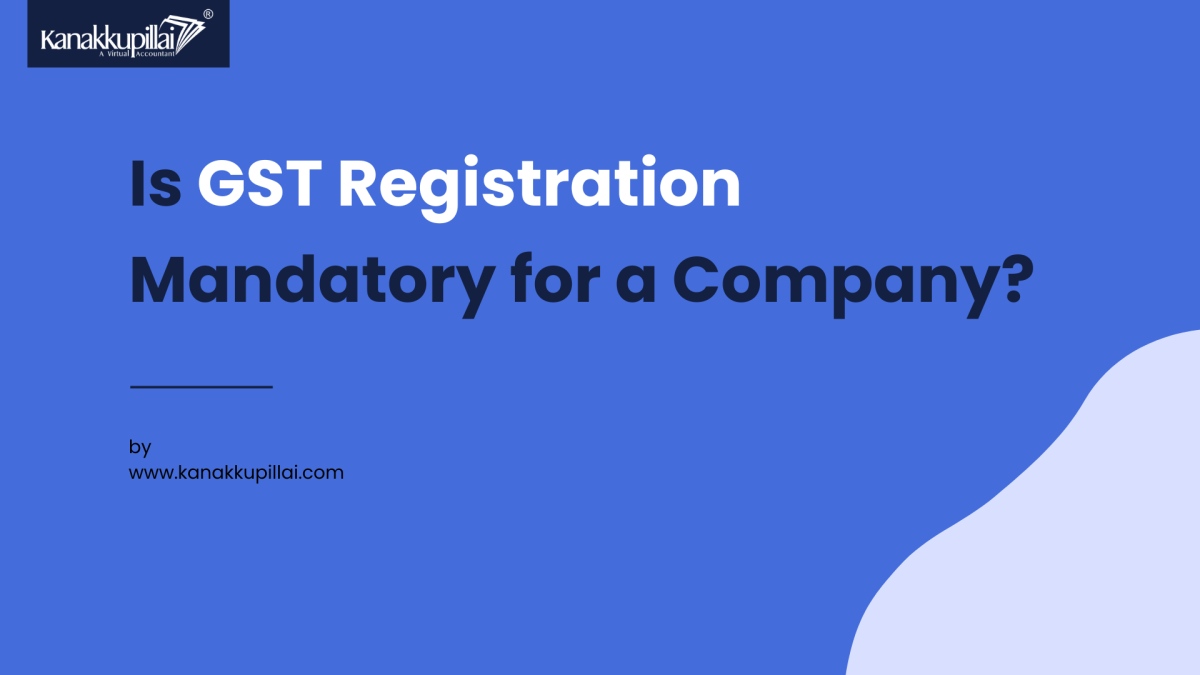Discovering Reputable and Effective Best GST Registration Services in Singapore
Discovering Reputable and Effective Best GST Registration Services in Singapore
Blog Article
Throughout: The Ultimate Roadmap to GST Registration for Companies Looking For Financial Security
Navigating the intricacies of Goods and Provider Tax (GST) registration is an important action for services pursuing financial security. From recognizing the essential concepts of GST to conforming with post-registration standards, the procedure can appear discouraging in the beginning look. Nonetheless, breaking down the roadmap into convenient actions can improve the registration trip for organizations aiming to enhance their financial standing. Let's check out the crucial parts that make up this ultimate roadmap and discover exactly how each phase adds to laying a strong foundation for monetary success.
Understanding GST Basics
Delving right into the basic concepts of Item and Provider Tax Obligation (GST) is essential for acquiring a detailed understanding of its effects on services and the economic situation. GST is a value-added tax levied on many products and solutions for domestic consumption. It has changed several indirect taxes that existed in the pre-GST age, streamlining the tax obligation structure and enhancing convenience of doing company in India. Under the GST system, both solutions and goods are taxed at a particular rate, which is figured out based upon their category. Services are required to sign up for GST if their annual turn over exceeds the threshold restriction set by the federal government. Input Tax Obligation Credit (ITC) is a considerable attribute of GST, allowing organizations to claim credit for taxes paid on inputs, reducing the overall tax obligation burden. Comprehending the basics of GST is important for organizations to conform with tax obligation regulations, manage their funds efficiently, and add to the country's financial development by joining a transparent tax obligation system.
Qualification Criteria for Registration
To register for GST, companies need to meet particular eligibility criteria developed by the federal government. The main eligibility requirement is that any organization entailed in the supply of items or solutions with an annual accumulation turnover above the threshold limit set by the authorities need to register for GST. As of the existing guidelines, the threshold limitation for GST registration is a yearly aggregate turnover of 40 lakhs for services operating within a state, other than for unique group states where the restriction is 20 lakhs. In addition, certain services are required to sign up for GST irrespective of their turn over, such as interstate providers, casual taxable persons, and businesses reliant pay tax obligation under the reverse cost mechanism. It is important for organizations to extensively assess their turn over and deal kinds to establish their GST enrollment responsibilities accurately. Failing to sign up for GST when eligible can lead to charges and legal consequences, making it necessary for companies to stick to the specified eligibility requirements.
Records Needed for Enrollment
Having actually met the eligibility requirements for GST registration, services must currently guarantee they have the requisite files in location to continue with the registration procedure successfully. The records required a knockout post for GST enrollment generally include proof of service constitution, such as partnership act, enrollment certification, or consolidation certification for various kinds of organizations. Furthermore, businesses need to give papers establishing the major place of service, such as a rental agreement or electricity expense.
Step-by-Step Enrollment Process
Beginning the GST enrollment process includes a collection of structured steps to guarantee a smooth and compliant registration for services. The very first step is to check out the GST portal and fill up out the enrollment kind with accurate information of the business entity. Following this, the applicant gets a Temporary Reference Number (TRN) which is made use of to return to the application process if it's not finished in one go.
Following, all called for documents according to the checklist supplied by the GST portal demand to be uploaded. These documents normally consist of proof of organization identity, address and enrollment evidence of marketers, economic statements, and service entity's frying pan card.

Post-Registration Compliance Standards
.jpg)
Verdict
To conclude, businesses seeking monetary security needs to comprehend the basics of GST, meet qualification standards, collect necessary records, follow the step-by-step registration procedure, and abide by post-registration standards - Best GST registration services in Singapore. By sticking to these actions, businesses can ensure conformity with tax obligation regulations and maintain monetary stability over time
In addition, specific businesses are needed to register for GST irrespective of their turnover, such as interstate suppliers, laid-back taxable individuals, and organizations accountable to pay tax under the reverse cost system.Having actually satisfied the eligibility requirements for GST enrollment, businesses should now ensure they have the requisite papers in location to continue with the enrollment procedure effectively. The records needed for GST enrollment typically consist of evidence of business constitution, such as partnership act, registration certificate, or incorporation certification for different types of businesses. Additionally, services require to give records establishing the major place of organization, such as a rental arrangement or power costs.Starting the GST registration process entails a collection of structured steps to ensure a seamless and compliant enrollment for businesses.
Report this page